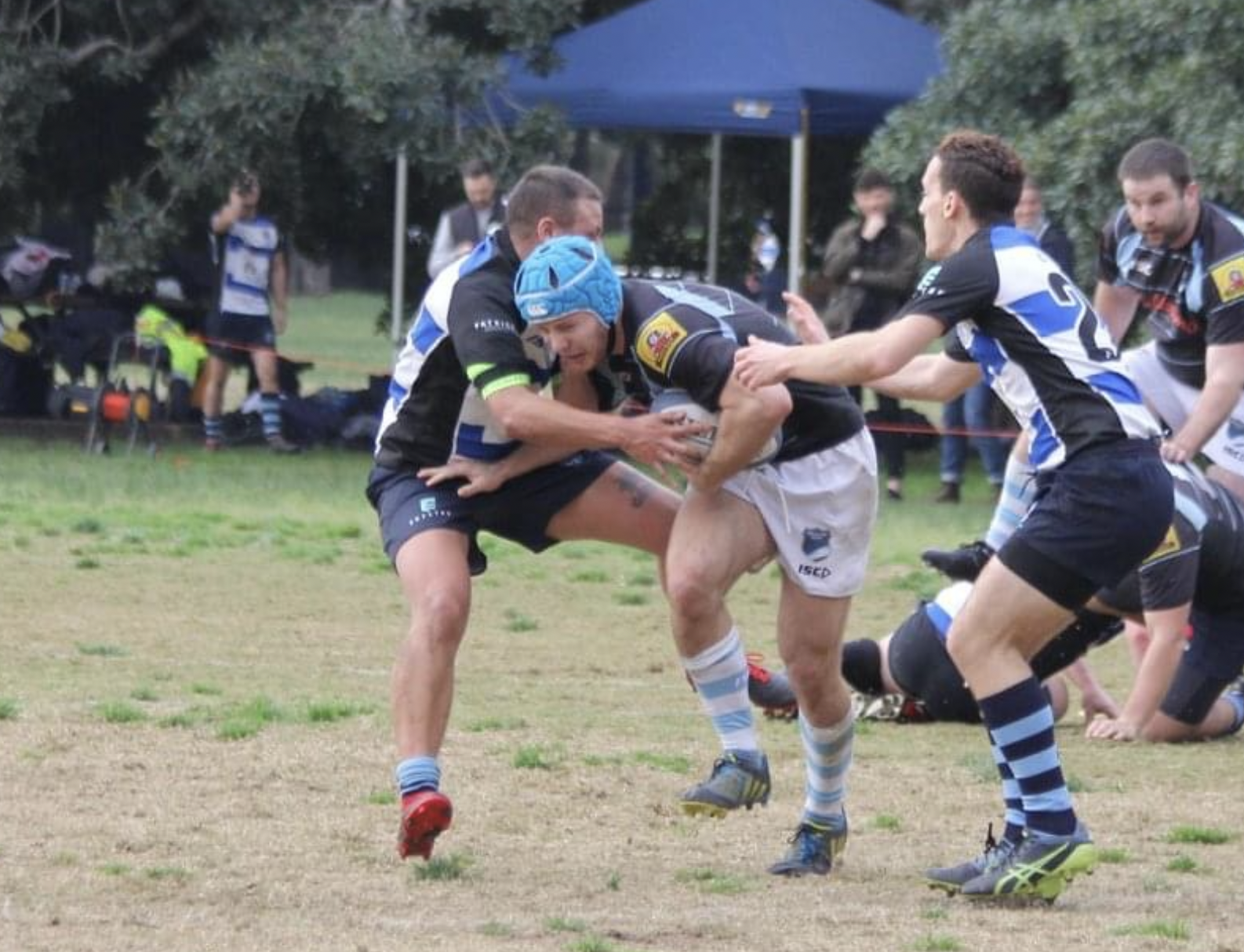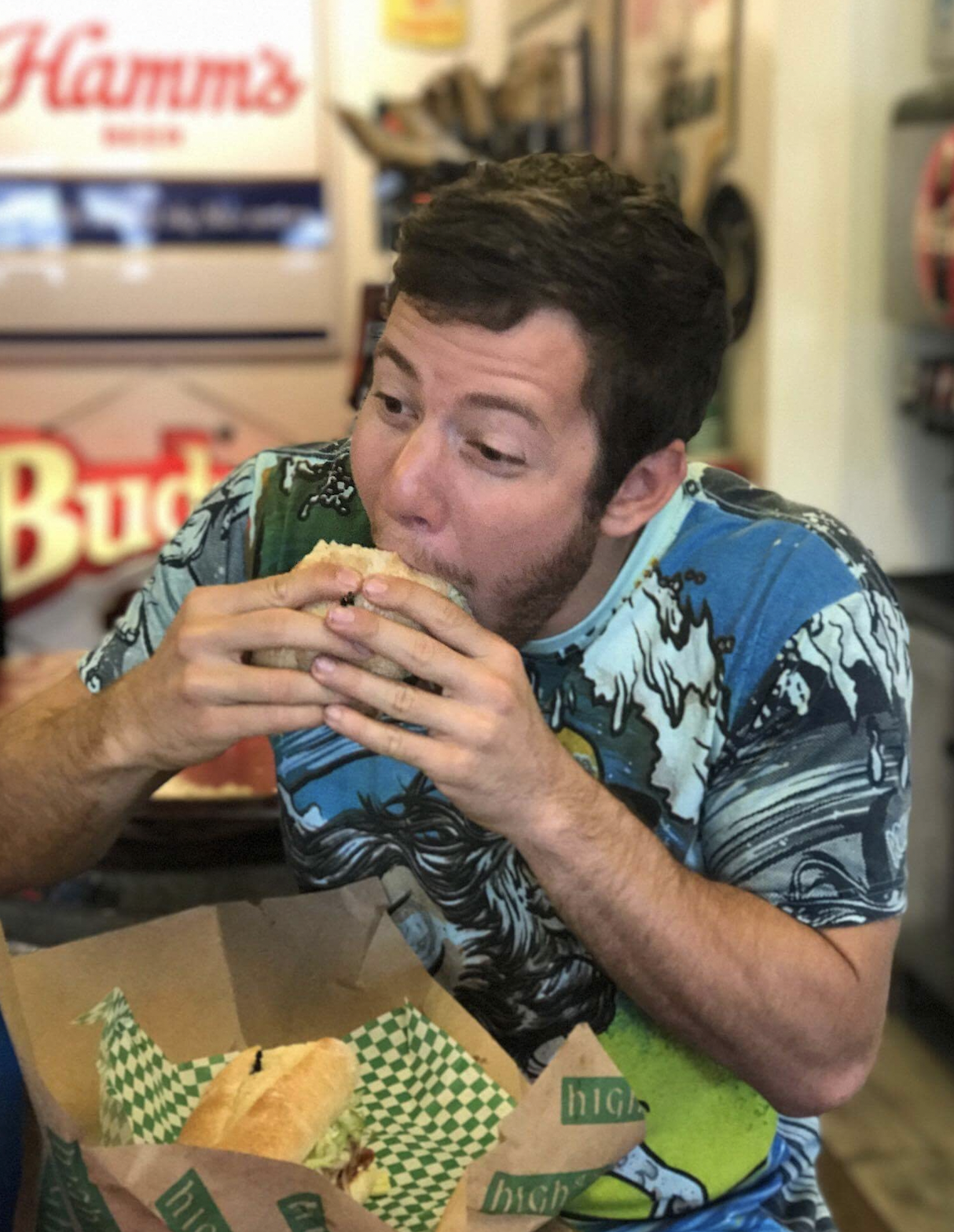My Journey from Carnivore to Animal Charity Founder
4 minute read - August 17th 2024
Here’s something a lot of vegans don’t like to admit – almost all of them were meat eaters once. And many of them would have never imagined stopping.
Sure, for some people, going vegan was easy. They never really liked eating meat in the first place, or they grew up in a vegetarian or vegan household. But for many of us, it’s hard.
That’s how it was for me. I wanted to share my experience. I want to say that if you are one of the nearly one quarter of people who are cutting down on their meat eating but struggle with the idea of never eating meat again – I get it. The good news is, changing what you eat is only one way to help tackle factory farming’s harms to people, our planet, and animals. But I’ll get to that later.
My journey
Growing up, I was the typical meat-eating bloke. Steak was my favorite food, and as I got into weightlifting and rugby in my 20s, my identity as a ‘carnivore’ only grew stronger.
Me in my rugby playing days, getting tackled
I can’t pretend that I hadn’t encountered any reasons to question my meat consumption: If you think about it, the cartoon smiling chicken at the chicken shop is a bit dark… and does anyone really think that those pictures of a few happy cows standing in a field accurately represents where our milk comes from? Even my favorite show The Simpsons had an episode where Lisa went vegetarian. The reasons to think about it were there, but somehow, like most people, I managed to block it out.
Unfortunately, animals were harmed in the creation of this photo :(
It wasn’t until university that I first really confronted the issue. I think it began when I read the philosopher Peter Singer explain why we don’t have any good reasons to disregard animal suffering. He has such a clear and logical way of writing that makes him so hard to disagree with, even if you’d like to. Around the same time, I met my partner, who had just started cutting down her meat consumption and so we were exploring the ethics of our food together.
But change was slow. I told myself I’d cut down, but I also worried that doing so would hurt my athletic performance. Plus – let’s be real – a big part of me just didn’t want to. I made little headway.
In 2017, I read Animal Liberation and intellectually accepted the moral case for being vegan. Yet, I struggled to align my actions with my beliefs. I had limited willpower and it wasn’t getting me there. It became clear that I needed to prioritize. For example, I cut down specifically on the foods that seemed to cause the most suffering per meal (like chicken) and worried less about animals without central nervous systems (like mussels and oysters).
My journey continued, but it wasn’t without setbacks. I struggled with temptation, especially around other people eating meat. While my partner had gone pescatarian, I felt ashamed of my meat consumption. I would even buy Nandos and eat it in secret. One time, my partner caught me shamefully eating half a chicken in my car. That has to be my “rock bottom” with regard to meat 😂
After that, I made some better progress when I decided to push myself to watch the film Dominion the whole way through. It was really tough, but seeing the suffering of animals right there on screen helped me to connect my food with where it came from. This made it far easier to make the choices I wanted myself to make. At that point, I went what I called “wild pesce-dairian” – cutting out all animal products except wild-caught seafood and dairy (which I saw as the least harmful).
I think the biggest thing that helped me get to where I wanted to be eventually – being fully plant-based – was the clean break that came with moving halfway around the world, from Australia to the UK. I was surrounded by like-minded individuals and better plant-based options, and this made it much easier. Over time, my cravings subsided, and I realized I could happily live without animal products indefinitely. I was able to eat in alignment with my values, without having to think about it day to day.
Change for me was really hard and sometimes my progress went backwards. I know it’s like this for many others. That’s why I feel it is important that people have another way to live in alignment with their values and take action on factory farming. And there is: One of the simplest and best ways to help animals is to donate. There are organizations out there that are transforming our food system, and our donations are their fuel! I started donating 10% of my income to charities in 2018, which might sound like a lot, but it was far easier than it was for me to change my diet at the time.
So if you’re struggling with diet change, I can empathize. We launched FarmKind for people like you (and me), to make it easier to make a difference. We even built a calculator that you can use to see how many animals your diet is impacting and how much to donate to offset that impact. This is an easy way that all of us can reduce the impact of our diet on animals and the planet, whether as part of the journey to being completely plant-based or not.
If this tool had been around when I was on my struggling on journey it would have been perfect for me. I hope you find it useful too!




